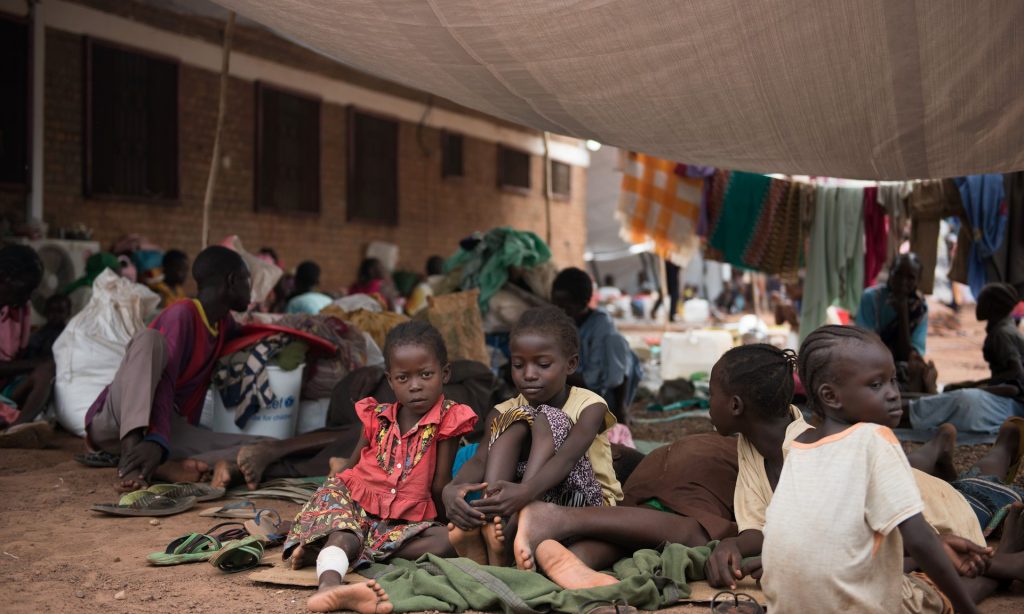
Photograph: Charles Lomodong/AFP/Getty Images
As recent clashes in the north-west town of Wau and Juba have shown, South Sudan still has a long way to go to dispel entrenched mistrust and break the tussle for power between factions that fight on, five years after we gained independence.
At least 43 people died in the fighting between militia factions, and more than 70,000 civilians have been forced to seek shelter in churches, the UN compound and surrounding villages.
When the conflict first broke out in the capital, Juba, in December 2013, it was described – at least to the outside world – as a conflict of personalities between two leading politicians, president Salva Kiir and former vice-president Riek Machar. There were peace negotiations last year in Addis Ababa, overseen by the Intergovernmental Authority on Development (IGAD), at which I was a member of the ecumenical delegation. Two months ago, Kiir and Machar finally agreed to share power in a transitional government.
History has taught us that after the signing of a peace agreement comes the arduous task of rebuilding our broken pieces – social and political relationships, the fragile economy, and the infrastructure of our states, devastated by the conflict. But what we are dealing with is a conflict deeply rooted in complex political and ethnic divisions that didn’t disappear the moment South Sudan came into being on 9 July 2011.
Many people in South Sudan are wounded in spirit. The pain of decades of war has not been addressed; our hard-won independence did not bring justice for the many who had suffered. No one has been convicted of crimes against humanity, and people have not been able to tell their stories, to relate what happened to them and their family members. Without reconciliation and forgiveness, our wounds will remain open.
We in the South Sudan Council of Churches have called on the government to set up an independent committee to investigate the killings in Wau. Our greatest influence with the government is achieved through advocacy and an insistence that there is an appeal for calm, and also as a church, working with different ethnic groups on reconciliation and peace-building in our dioceses and parishes. We continue to appeal to the entire population to embrace peaceful means of resolving conflicts.
Churches represent perhaps the only “institution” that transcends ethnic and regional differences. The survivors of violence seek sanctuary in the safest place they know, which is often the local church compound. We do all that we can to give the suffering the food and water they need, as well as spiritual comfort.
As faith leaders, we not only represented our congregations and parishes in Addis Ababa, we were also able to bear witness to their suffering. The suffering of families fleeing their homes and living in dire conditions along the Nile; of mothers mourning the senseless deaths of their husbands and young sons; of children sick with disease, families surviving on very little food, and young people unable to finish their education.
Constant unrest impedes the delivery of much-needed aid to suffering people. International aid agencies like Cafod and Trocaire, with their local partners, have kept people alive with basic necessities such as food, clean water and sanitation. We badly need their humanitarian support to continue.
We are a people of one country. Let us not dare to lose this great, God-given opportunity to build a vision of peace through mutual dialogue for the whole of South Sudan. Our leadership must work together, with sincerity and courage, to bring the people of South Sudan the sustainable peace and security they so deserve.

